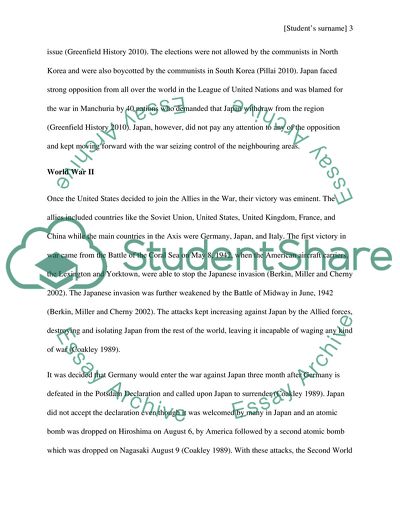Cite this document
(Causes of the Korean War Term Paper Example | Topics and Well Written Essays - 3500 words, n.d.)
Causes of the Korean War Term Paper Example | Topics and Well Written Essays - 3500 words. Retrieved from https://studentshare.org/history/1742749-what-the-caused-the-korean-war
Causes of the Korean War Term Paper Example | Topics and Well Written Essays - 3500 words. Retrieved from https://studentshare.org/history/1742749-what-the-caused-the-korean-war
(Causes of the Korean War Term Paper Example | Topics and Well Written Essays - 3500 Words)
Causes of the Korean War Term Paper Example | Topics and Well Written Essays - 3500 Words. https://studentshare.org/history/1742749-what-the-caused-the-korean-war.
Causes of the Korean War Term Paper Example | Topics and Well Written Essays - 3500 Words. https://studentshare.org/history/1742749-what-the-caused-the-korean-war.
“Causes of the Korean War Term Paper Example | Topics and Well Written Essays - 3500 Words”, n.d. https://studentshare.org/history/1742749-what-the-caused-the-korean-war.


